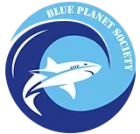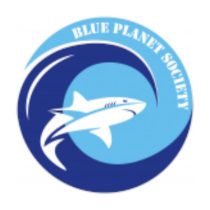On paper, the UK could be considered a leading example for the protection it warrants its waters. The ‘Blue Belt’ programme safeguards over 4 million square kilometres of ocean around overseas territories. The UK is the second nation in the world, behind Palau, with the highest percentage of protected waters – 39% including overseas areas such as the Pitcairn Islands in the South Pacific, and Saint Helena, Ascension and Tristan da Cunha in the South Atlantic. However, when it comes to effectively tackling harmful fishing practices, it’s falling short on its commitment.


Frank Bonefaas, Dover, December 2021 By Nick Pope: Dolphins Aren’t Discard campaign World Cetacean Alliance and Sussex Dolphin Project
Have you heard of supertrawlers? There are currently eight Europen-registered supertrawlers licensed to fish in British waters. These are giant factory ships, usually over 100 metres in length, that can catch tonnes of fish, and whatever else is in their way, every day with their kilometre-long nets. For comparison, that’s three times the length of the Eiffel Tower. Supertrawlers can stay at sea for weeks catching huge amounts of marine life, processing and freezing the animals at the same time. Therefore, it’s not hard to imagine the devastating impacts they have on the ocean.
This scale of fishing is far from sustainable. Populations can’t recover at the same pace they’re being taken from the ocean, leading to overfishing, and creating an imbalance in the ecosystem. Over a third of global fish stocks are overfished. Overfishing destabilises the food web and causes food and economic insecurity for those who rely on the fishing industry for their livelihood and for their protein intake, especially in developing coastal communities.
Supertrawlers target pelagic fish species such as mackerel, blue whiting, and herring. However, turtles, dolphins, seals, and other animals are also caught as bycatch in these giant nets. Bycatch refers to unwanted marine life that’s unintentionally caught by a fishing vessel. It’s estimated that over 300,000 small whales, dolphins and porpoises die from entanglement in fishing nets every year.


‘How long is a supertrawler net’ infographic: Dolphins Aren’t Discard campaign World Cetacean Alliance and Sussex Dolphin Project
In 2020, the Sussex Dolphin Project recorded 17 dead cetaceans on local beaches during a period that supertrawlers were fishing along the Sussex coast. In comparison, there were only two deaths on the rest of the year when there was no supertrawler activity in the area. As scientists believe only 10% of bodies wash up on shore, the true figure is likely to be closer to 170 bycatch-related deaths in Sussex. This gives a dimension of how big the problem really is.
The Pelagic Freezer Trawlers Association (PFA), which represents eight trawler companies that fish in UK waters, claims to limit bycatch to levels below 1% “through highly selective fishing practices to detect homogenous shoals of pelagic fish”. This sounds great, however, the Marine Management Organisation (MMO), which requires all licensed vessels in the UK to report marine mammal bycatch within 48 hours, has no data whatsoever to corroborate this information. Neither does the PFA have any public record to prove it, according to the Dolphins Aren’t Discard campaign, which is a collaborative campaign by Sussex Dolphin Project and the World Cetacean Alliance. It calls on the UK Government to hold supertrawlers to account by requiring all vessels over 95m in length, operating within the UK’s Exclusive Economic Zone, to use remote electronic monitoring, make their catch records publicly available and share all data submitted to ‘sustainable seafood’ certifications.
Yes, according to the Marine Stewardship Council, supertrawlers can fish sustainably. A kilometre-long and 200-metre-wide net being dragged in the ocean and catching only targeted fish is a hard pill to swallow.
A less-known but equally damaging practice is high-grading, which is also illegal. High-grading is discarding low-value catches in order to preserve the quota for high-value fish. In 2022, the FV Margiris, one of the supertrawlers allowed to fish in the UK and the world’s second-biggest fishing vessel, dumped 100,000 dead blue whiting in the Bay of Biscay in France. This event was documented by Sea Shepherd France and The Margiris, represented by the PFA, alleged this was an accident caused by a rupture in the vessel’s net.
The PFA is one of the biggest and most powerful organisations with a fleet of 18 supertrawlers. It states that its members are “family-run companies” across Northern Europe in France, Germany, Lithuania, the Netherlands, Poland, and the UK. However, they ultimately represent the interests of three Netherlands-based companies and their subsidiaries.
Some of the trawlers represented by the PFA carry UK and German flags even though their beneficial owners aren’t based in these states. They have changed flags many times over years to take advantage of benefits and resources of different countries. While they profit from subsidies and access to fish stocks from countries whose flag they use, they give little back to the local community.


Common Dolphin, Southwick Beach, Sussex, February 2021. Dolphins Aren’t Discard campaign World Cetacean Alliance and Sussex Dolphin Project
We previously mentioned UK’s protected waters. These marine protected areas (MPAs) are sections where human activities are banned to a certain extent, allowing the ecosystem and its populations to recover and thrive. Or they should do so, at least on paper. A Greenpeace investigation found that supertrawlers spent 2,693 hours fishing in 39 UK MPAs in 2019 alone – legally.
An interesting point, to say the least, made by the PFA in a statement earlier this year about their supertrawlers fishing in MPAs was that this wasn’t an issue as “most of the MPAs are designed to protect seabed habitats” and the target pelagic fish species live in the water column. There are many reasons for specific sites being designated as protected areas, seabed habitats being only one of them. The Southern North Sea MPA in England, for example, was created to safeguard porpoises.
The affected UK MPAs are in the nation’s ‘Exclusive Economic Zone’ (EEZ), which means they’re located between territorial waters and the high seas. When these MPAs were created, the government failed to implement strong rules as the EU law limits how countries regulate their coastal waters. Even though this hasn’t been the case since Brexit on the 31st, January 2020, the government hasn’t taken any new measures to tackle this particular issue yet.
Marine Protected Areas are extremely important to ensure healthy ecosystems. While some cover open ocean areas, others are in coastlines, rivers, and estuaries. Their ultimate goal is the protection of a site and its biodiversity, allowing populations to reproduce and the food web to function properly. This then allows better and sustainable fishing practices around them as animals migrate from one place to the other. There are numerous success cases such as the Cabo Pulmo National Marine Park (CPNP) in Mexico, which has seen an increase of over 460% in the total amount of fish in a 10-year period.
The lack of proper and enforced fishing regulations is a global issue. The ocean is considered almost an outlaw space: everyone wants to explore it, but no one wants to be responsible for it. It’s divided into various zones which fall under the responsibility of different institutions with different purposes. Territorial waters extend from the baseline to 12 miles and belong to the state’s territory, while the Exclusive Economic Zone (EEZ) goes from the territorial waters up to 200 miles offshore.
The EEZ isn’t part of a country’s territory but only the coastal state can extract resources from the area. Other countries need permission to use any of those resources. After the 200-mile threshold are the high seas. The high seas, or international waters, are pretty much a free for all. Its vastness makes any kind of law enforcement extremely difficult and complex, even in the rare occasions when there’s political will. Fishing companies, legal and illegal, take maximum advantage of it, leading to depleted fish stocks.
Hundreds of thousands of marine animals die needlessly every year as result of bycatch or entangled in abandoned fishing gear. Our fish populations are dramatically decreasing. Marine species are rapidly moving towards extinction risk. This is where our ‘out of sight, out of mind’ mentality and the lack of thought about the many unsustainable fishing practices are leading us.
We need to demand better and sustainable policies from governments and companies but we also need to critically think about our consumption habits and make effective changes.





